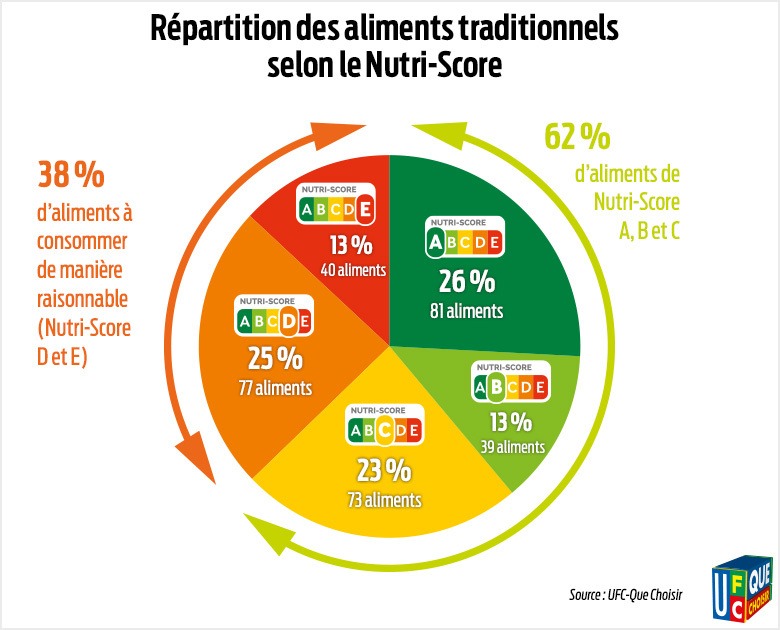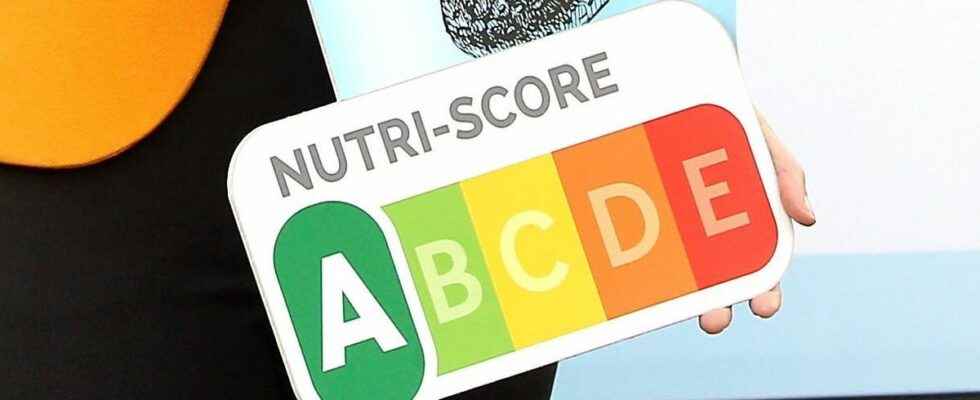Published on
Updated
Reading 2 mins.
The Nutri-Score is accused of stigmatizing traditional French products. An unfounded accusation according to UFC-Que Choisir which shows that two-thirds of them have a favorable score, even very favorable.
The Nutri-Score is a label that helps consumers better guide their food choices, by giving a grade from A to E to food products, according to their nutritional value. In February 2021, 7 European countries – including France – committed to facilitating the use of Nutri-Score. Since its adoption, it has been used by more than 700 French companies.
But lately, industrial lobbies have denounced the Nutri-Score stigmatization of traditional French products. In response, the UFC-Que Choisir association analyzed the Nutri-Score of 310 traditional local products. And the results published on the association’s website are amazing.
Two-thirds of products have a favorable Nutri-Score
According to the survey of 60 million consumers, 62% of the food products studied have a Nutri-Score A, B or C, that is to say a Nutri-Score that remains favorable. In total, 120 foods are classified A or B and 73 are classified C. According to UFC-Que Choisir, the consumption of these products is “the more frequently promoted for their better nutritional quality”.
Among the 120 foods whose consumption is promoted, there are:
- 30 traditional dishes such as Flemish hochepot, Auvergne hotpot or the famous Castelnaudary cassoulet.
- 34 meat and poultry products, such as Camargue AOP bull, Limousin veal reared by its Label Rouge mother, Bigorre AOP black pork, or Mont-Saint-Michel AOP salt-meadow lamb
- 37 vegetables, fruits and legumes such as endive from the North, lamb’s lettuce Nantaise IGP, red apricot from Roussillon AOP, melon from Quercy IGP, green lentils from Puy AOP or mogettes from Vendée IGP
Among the 73 traditional foods with a Nutri-Score C, we find Alsatian spaetzle pasta, parsley ham from Burgundy, far Breton or cancoillotte from Franche Comté.

UFC-Que Choisir warns against misinterpretations of Nutri-scores D and E. Only 38% of the products studied are concerned, “contrary to what the opponents of Nutri-Score claim”.
“This classification operated on a scientific basis is perfectly justified since it reflects the high levels of saturated fat and salt present in certain charcuterie”, argues the association. This is particularly the case with rillettes from Tours, knack sausages from Alsace or certain cheeses such as Roquefort or Bleu des Causses.
According to UFC-Que Choisir, the Nutri-scores D and E do not prohibit the consumption of the products concerned, but on the contrary advocate moderation. There is no nutritional ban and it is of course possible to consume these products with a diversified and balanced diet.
“Let us remember that these D and E ratings, rarely displayed on the products that obtain them, are in no way intended to denigrate them, nor to prohibit their consumption, but only means that it is recommended to consume them in moderate quantities. and at reasonable frequencies”explains UFC-Que Choisir.
NO to diets, YES to WW!
UFC calls on Europe to make Nutri-Score mandatory
In its press release, the UFC announces that it has transmitted the results of the investigation to the European Commission. She asks him to “ignore the fallacious arguments of manufacturers” who decided tohide the low, even poor nutritional quality of their products” and of “refuse any improvement in their recipes”. by making the Nutri-Score mandatory everywhere in Europe”.
For the association, the Nutri-Score is “a simple and rigorous display, acclaimed by both scientists and consumers” which must be made compulsory everywhere in Europe.
